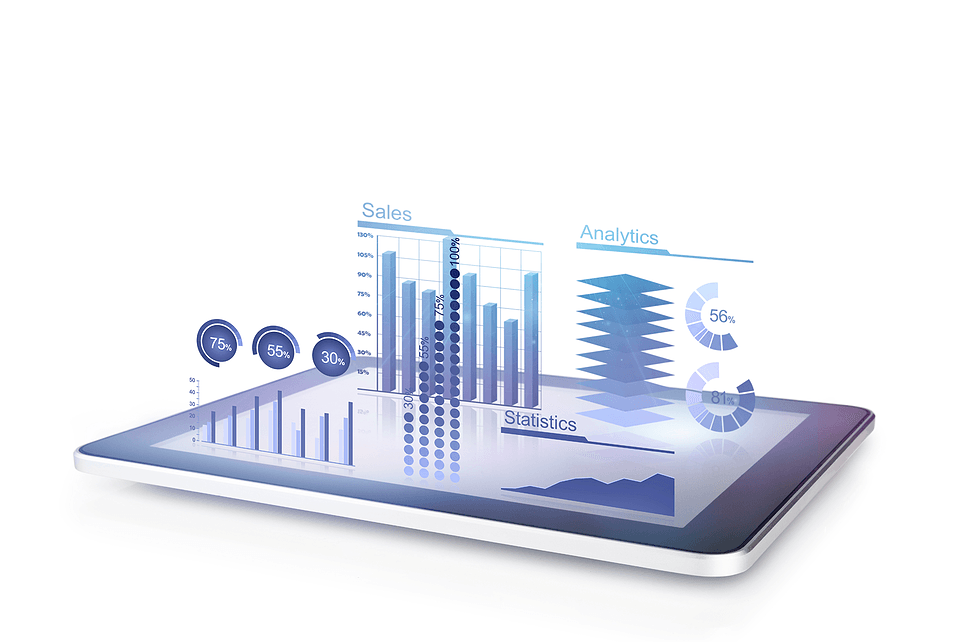How to Calculate Your Conversion Rate as a B2B Company

It is essential for all companies to calculate their conversion rates to assess the success of their website and marketing campaigns, and to help understand if their marketing is supporting a customer's journey through the buying cycle. Because B2B sales cycles often take longer to close than B2C sales, calculating your conversion rates and assessing the performance of marketing campaigns is even more crucial for B2B companies.
Lead Generation – Helping You To Calculate Your Conversion Rate
Breaking down lead qualifications into various stages can help you to calculate your conversion rate for marketing campaigns:
- Impression – Response from an article, advertisement or other form of marketing promotion
- Website visit – A unique visitor to your site.
- Inquiry – A response to a program (such as a booth visitor or contact form) where you collect contact information but have very little additional information.
- Marketing qualified lead – A lead that meets specific criteria, such as company size or industry
- Sales accepted lead – A lead which has been accepted by sales.
- Sales qualified lead – A lead which has evolved into a qualified opportunity
- Win – Closed business
Most companies choose to track leads to increase conversion rates for marketing campaigns. Tracking your conversion rates from one stage to the next is sensible as this will highlight what is working for your company and where improvements can be made. Another great way to help conversions is to effectivelyuse Social Media, here is a very helpful article - “Social Media Is Not For Business” - How This Misconception Is Costing Your Business
Statistics extracted from Marketing Sherpa show only 27% of B2B leads are sales-ready from the get-go. Failing to nurture leads at this point can lead to a significant drop in conversion rates.
Calculating Website Conversion Rate
We're sure you already know that the website conversion rate is the number of visitors that navigate to your site and make a purchase – in effect converting a visitor into a buyer. If you want to calculate the conversion rate for your website, you might want to calculate lead conversion or product sales conversion, depending on the information you're looking for – or both! Using your website analytics program (such as Google Analytics) to gather data, you can use set formulas to determine your conversion rates, such as the ones below:
- Lead Generation: Number of leads collected ∕ total traffic to site x 100 = conversion rate
- Product Sales: Number of sales ∕ number of visitors to site x 100 = conversion rate
 Benchmarking Your Conversion Rate
Benchmarking Your Conversion Rate
Once you've calculated your conversion rate, what are you going to do with the information? Well, it can be used to improve your website and marketing campaigns, highlighting where changes can be made. You can also use the information you have gathered to benchmark your conversion rate against other B2B businesses; your competitors.
Let's get one thing straight, there is no 'universal average' for conversion rates. That's a myth. Rates can vary across industries, locations and products. The list of factors affecting conversion rates is endless. So the actual conversion rate will depend on a number of factors.
Most B2B marketing conversions are contact registrations rather than direct purchases – for example submitting a contact form, subscribing to a newsletter or downloading a technical document. Average conversion rates for these types of B2B conversions are typically between 4% and 8% - so for every 100 visitors, you could expect between 4 and 8 people to register, provide contact details or interact with you in some other way. But this rate will obviously vary tremendously depending on your industry, what you are selling, your prices, your website etc. Rates vary massively across industries and can be as high as 10% for professional or financial services or as low as 3% for retail and e-commerce businesses, according to statistics published by Esherpa in 2012.

The problem with Google Analytics
Using website analytics programs such as Google Analytics to calculate your conversion rate is all well and good, but if you're a UK based B2B company targeting a UK market, you may run into some problems when tracking your conversions. You'll need to be smart in order to figure out your 'true' conversion rate as Google automatically treats every visitor to your site (from worldwide) as a potential customer. For example, if your target market is UK businesses, you should use the following formula to calculate your real goal conversion rate:
Total goal completions ∕ visits from your target market
This will give you your true goal conversion rate!
Calculating your conversion rate as a B2B company does not have to be difficult – it may take time and effort, but there are analytics programs out there designed to help you calculate and track your conversions and improve your rate (Hubspot is one of those - read 12 Marketing Tools That Can Be Replaced With Hubspot to find out more).
To beter understand your conversion rate, you can spend 30 minutes with a marketing expert for free by requesting a FREE marketing audit
And to improve your conversion rates you can download our free checklist: Website Conversion Rate Checklist

